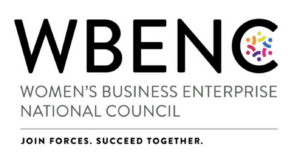
Set your timer!
This is a 10 minute read and by the end of it you will:
- Understand executive functioning
- Learn three key areas to know about
- Discover what you can do today to find out about your brain’s executive functioning
Executive functioning is the CEO of your brain.
Executive functioning prioritizes what you will do, keeps your ideas and to dos organized in your brain and top of mind, plans tasks out, monitors time, gets work started, keeps you focused, self-regulates your emotions, allows you to think about your thinking, switches gears as needed in thinking or problem solving, and persists toward goals you make.
Another way of thinking about Executive Functioning is that it is the part of the brain that has the functioning for you to complete tasks efficiently.
So, Weak Executive Functioning can translate to a student who has trouble with:
- Getting started
- Focusing on one task at a time
- Showing up on time for appointments
- Studying
- Completing Mental Math or Writing Assignments or Reading Long Books
- Keeping emotions under control
- Completing projects or tasks
- Switching gears or having flexible thinking
- Organizing materials
- Prioritizing tasks
- Inhibiting (which means they can be impulsive)
Weak executive functioning can translate into “unlucky” behaviors.
Teachers and parents can be off put by a student who forgets to turn in work, can’t manage their time, or has impulsivity.
The modern knowledge we have about the brain and executive functioning allows us to understand that these “unlucky” behaviors stem from brain functioning (or lack of functioning), not willingness, drive or desire to learn. In other words, a student with low levels of executive functioning are not TRYING to be poor executers – their brains have lagging functionality and lagging skill.
Three key areas of executive functioning.
The Mindprint Learning Assessment and EEC Debrief at Evolved Education Company takes a closer look at three executive functions. These impact a student’s learning experience in profound and important ways.
- Attention
- Working Memory
- Flexible Thinking
Attention is the brain’s ability to stay focused on a task. We want students to have the ability to attend to one task at a time. Sometimes, a task is desired. Other times, the task is not desired. We want students to be able to attend in various contexts.
Working memory involves storing information and using it. We use working memory when writing because we are writing and storing the next phrase in our minds. Sometimes, we store the entire paper in our minds and then write it as we think about it. This process involves working memory. Mental math also involves using working memory. We are storing numbers in our minds, manipulating them around, and sharing the answer.
Flexible thinking is used often in learning. We examine various points of view. When problem solving, we think critically about a situation and our ideas may pivot or change as we process information and apply prospective solutions. To learn, we must change our mind. The process of learning uses flexible thinking.
To find out about your brain’s attention, working memory and flexible thinking, you can take a Mindprint Learning Assessment and have an Evolved Education Debrief. Click here to book it.
In this computer-based test, you can discover your brain’s ability to attend, its working memory capabilities, and how it uses flexible thinking.
In addition, the assessment provides individualized strategies and learning work to help the student to improve any areas of executive functioning that need to be bolstered.
In the debrief, students and their parents can speak with our learning specialists to be sure to understand the terms and results. We often find that both parents and teachers enjoy learning ways to support their children/students. We are all in a learning capacity, after all!
Our mission at EEC is to help students to learn well. We believe strongly that students will succeed when they have access to trusted adults who understand them as learners and who can teach strategies that align with their specific educational program. We invite you to become one of our treasured clients. Apply here.


